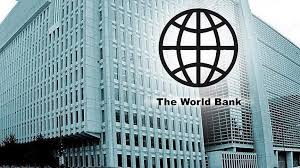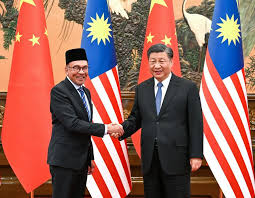EAP countries must act now to mitigate economic shock of COVID-19: WB report

Islamabad: :The World Bank (WB) in its latest report urged the East Asia and the Pacific (EAP) countries to act now to mitigate the economic shocks of Covid-19, which now caused a global shock.
According to East Asia and Pacific in the Time of COVID-19, the World Bank’s April 2020 Economic Update for East Asia and the Pacific, the virus that triggered a supply shock in China has now caused a global shock.
It said that the developing economies in East Asia and the Pacific (EAP), recovering from trade tensions and struggling with COVID-19, now face the prospect of a global financial shock and recession.
Sound macroeconomic policies and prudent financial regulation have equipped most EAP countries to deal with normal tremors, but an unusual combination of disruptive and mutually reinforcing events is being witnessed there.
“Significant economic pain seems unavoidable in all countries. Countries must take action now – including urgent investments in healthcare capacity and targeted fiscal measures – to mitigate some of the immediate impacts,” the report added.
In a rapidly changing environment, making precise growth projections is unusually difficult, therefore, the report presents both a baseline and a lower case scenario.
Growth in the developing EAP region is projected to slow to 2.1 percent in the baseline and to negative 0.5 in the lower case scenario in 2020, from an estimated 5.8 percent in 2019.
Growth in China is projected to decline to 2.3 percent in the baseline and 0.1 percent in the lower case scenario in 2020, from 6.1 percent in 2019. Containment of the pandemic would allow for a sustained recovery in the region, although risks to the outlook from financial market stress would remain high.
The COVID-19 shock will also have a serious impact on poverty, the report added.
The report estimates that under the baseline growth scenario, nearly 24 million fewer people will escape poverty across the region in 2020 than would have in the absence of the pandemic (using a poverty line of US$5.50/day).
If the economic situations were to deteriorate further, and the lower-case scenario prevails, then poverty is estimated to increase by about 11 million people. Prior projections estimated that nearly 35 million people would escape poverty in EAP in 2020, including over 25 million in China alone.
Among the actions recommended by the report are urgent investments in national healthcare capacity and longer-term preparedness.
The report also suggests taking an integrated view of containment and macroeconomic policies. Targeted fiscal measures – such as subsidies for sick pay and healthcare – would help with containment and ensure that temporary deprivation does not translate into long-term losses of human capital.
The report calls for international cooperation and new cross-border public-private partnerships to ramp up the production and supply of key medical supplies and services in the face of the pandemic, and to ensure financial stability in the aftermath.
Critically, trade policy should stay open so medical and other supplies are available to all countries, as well as to facilitate the region’s rapid economic recovery.
Another policy recommendation is easing credit to help households smooth their consumption and help firms survive the immediate shock.
Due to the COVID-19 pandemic, economic circumstances within countries and regions are fluid and change on a day-by-day basis. The analysis in the report is based on the latest country-level data available as of March 27.
The World Bank Group is rolling out a $14 billion fast-track package to strengthen the COVID-19 response in developing countries and shorten the time to recovery..





